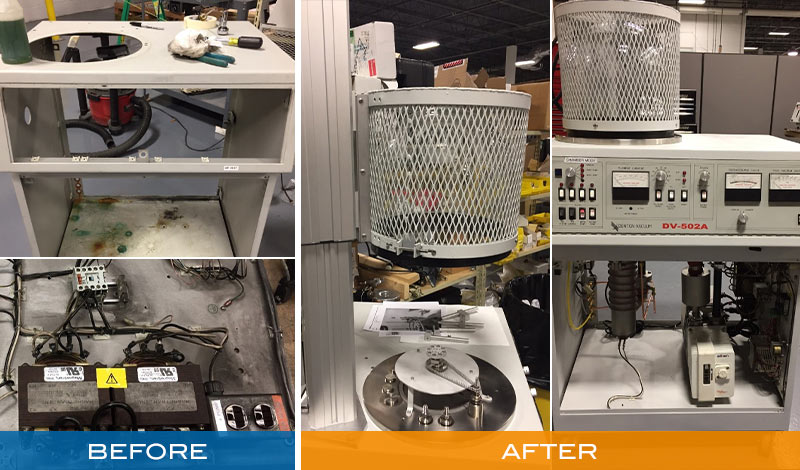
Posted on
Upgrades deliver a number of benefits without the need to invest in brand new equipment. They provide a cost-effective way to lower your cost of ownership, improve process capabilities and reduce maintenance and downtime. The ability to upgrade your thin film deposition configuration depends largely on your specific system, your application and process needs and your budget, which we discuss below.
Is it Time to Upgrade Your System?
At a minimum, if you’re not able to meet certain production requirements with your existing configuration and it’s affecting your ability to capitalize on business opportunities, then it’s likely time to consider upgrading. If you’re spending a significant amount of time on maintenance to operate your system, you also likely need to upgrade.
There are other factors to weigh before making a final decision when it comes to any capex spend. In certain cases, an upgrade may not make sense if the investment is not worth the benefits you’ll gain. And there are cases where your existing system just does not have the capability to add the needed components for an upgrade.
However, if you’re looking for process improvements and the opportunity to lower cost of ownership, there are several scenarios where it’s usually smart to start weighing your options for upgrading first, before you commit to buying an entirely new system.
Reasons Why You Should Consider an Equipment Upgrade
Here are a few good reasons why you should consider upgrading your system:
- Cost-effectiveness: You may not have the capital budget to invest in brand new equipment or systems. However, you may still need to improve certain aspects of your manufacturing process like throughput, productivity or repeatability. With an upgrade, you can make a smaller investment and reap the benefits of these improvements so you can still raise your ROI for the whole configuration.
- Additional or shifting process requirements: You may need to refine or improve certain areas of your thin film deposition process to increase your market share or take advantage of new business opportunities. For example, to make sure you’re able to meet production needs for manufacturing metal oxide films, you’ll need to raise your system’s deposition rate. To do so, you can upgrade your system with a PEM to improve deposition rate while gaining process control, allowing for higher efficiency without investing in a brand new system.
- Outdated software or CPU components: Mechanical components of your system are not the only ones that require upgrades. Your process software or CPU may also need to be upgraded, so that they can continue supporting your system requirements and factory output. These components may be outdated, or you may just need to scale into a higher production volume and throughput. The need for high-volume software is one big reason to upgrade.
- Ensure process performance and productivity is easily scalable: If you need to scale into a higher volume of production, it’s not just your software that needs to be upgraded. Your whole configuration should be primed for high throughput. One route to consider is adding a front-end option, as long as your system is compatible, to increase production efficiency.
Denton Vacuum’s team of experienced technicians and engineers can help you easily upgrade your thin film deposition equipment based on what’s best for your specific configuration. Learn more about the upgrades we offer, from complete system overhauls to retrofitting your control systems.